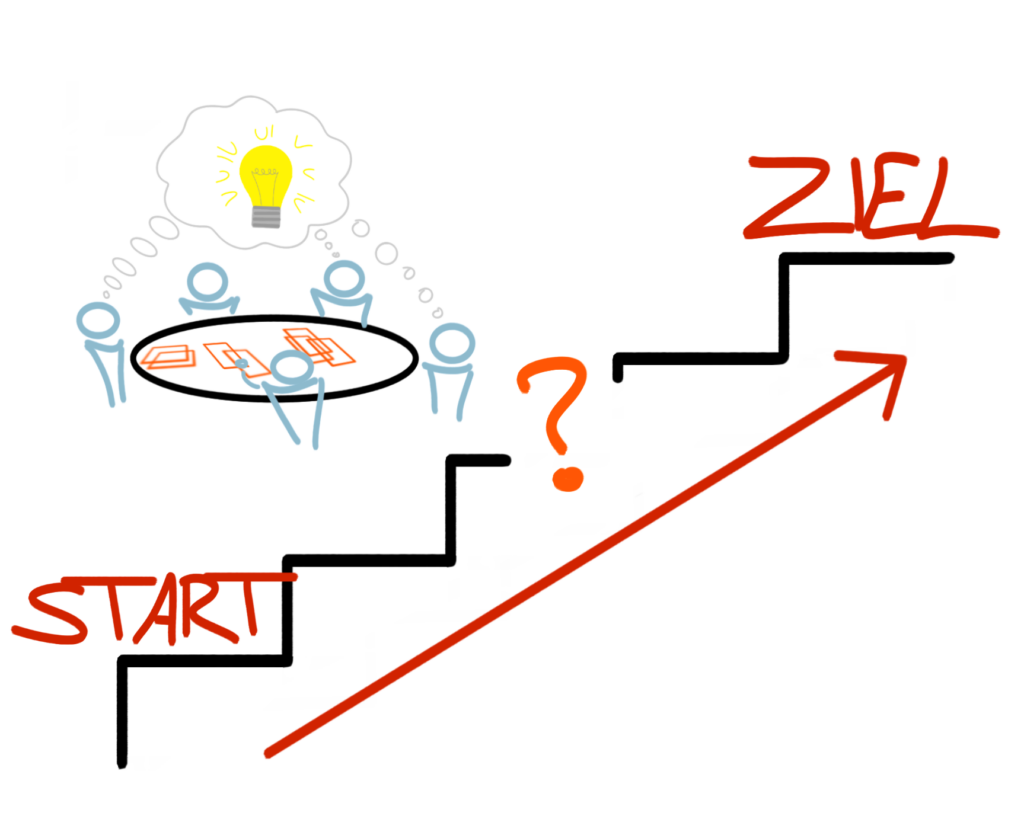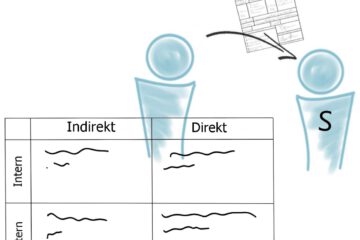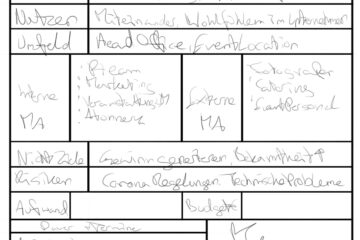
Teble of contents
- Forming
- Storming
- Norming
- Performing
- Ajorning
- The project manager’s role
Working in a team is essential for the success of most projects. This gives rise to a high potential for conflict, which usually manifests itself on an interpersonal level. To counteract this in the best possible way, it is important to go through the individual steps of teamwork.
Forming
This phase is also called the orientation phase. Here the team is put together and everyone gets to know each other. Initial conversations are held and the team members feel each other out, pleasantries are exchanged.
Storming
In this phase, also called the conflict phase, the first cliques are formed. The first conflicts arise and coalitions are formed. This is the result of the clashing roles, which now shine through for the first time.
Norming
Norming is essential for the performing phase. To work together successfully as a team in a project, rules are established in this phase. The team must define the rules themselves, this helps to ensure that they are better adhered to. The first exchange of information begins in this meeting. The general “we-feeling” arises and implies a demarcation towards the outside, the appearance as one unit.
Performing
Performing is the main phase of teamwork. This is where work packages are worked on and the project is carried out.
The success of this phase is based on team spirit, trust, solidarity, creativity and cooperation. The adherence to the established rules and the assigned roles from the norming phase is crucial.
Adjourning
This phase begins with the completion of the project.
A final meeting is recommended so that the team does not fall apart after the end of the project. This should take place in a neutral, non-work-related environment, for example over a meal. One reflects on the work done and possibly stays in contact with each other. This can also help with potential renewed cooperation and shorten the duration of the first three phases and minimize the potential for conflict.
The project manager’s role
| Phase | Role | Tasks |
| Forming | Host | Facilitation of the meeting, Presentation of the team |
| Storming | Catalyst | Mediator, Monitoring the formation of the group |
| Norming | Partner | Collating the rules, giving incentives, Moderation of the meeting |
| Performing | Supporter | Support on request, Monitoring and controlling of the working progress, Controlling of the teamwork and holding conflict workshops |
| Ajorning | Coach | Planning and opening the get-together |



0 Comments